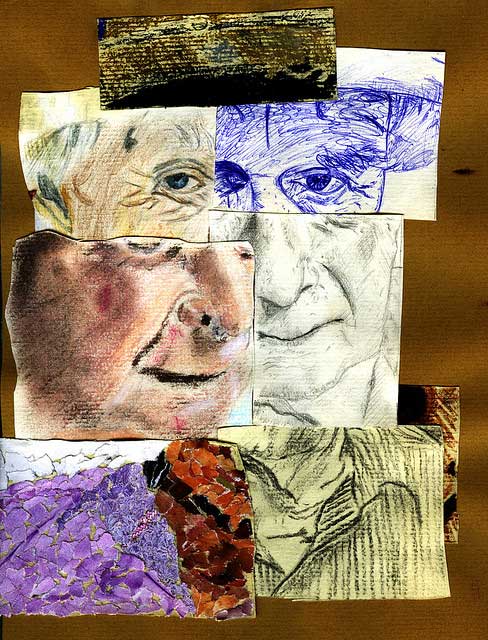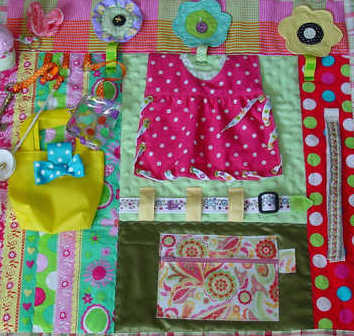5 Things you should know about dementia
 1 – Dementia is not a natural part of ageing
1 – Dementia is not a natural part of ageing
When someone becomes forgetful or confused, friends are often quick to reassure them that this is just ‘what happens when you get older’. Some of us do struggle with our memory as we age or during times of stress or illness. But dementia is different. Lots of people momentarily forget a friend’s name – someone with dementia may forget ever having met them. They usually experience a range
of other symptoms alongside memory problems and will begin to struggle with daily life. Dementia is not a normal part of ageing. It’s caused by changes to the structure and chemistry of the brain.
Dementia doesn’t just affect older people. Younger people are also susceptible have dementia. This is called early-onset or young- onset dementia.
The chance of developing dementia increases with age. One in 14 people over 65 – and one in six people over 80 – has dementia. It’s more common among women than men.
Help and support: If you are worried about your memory, or about someone else, the first step is to make an appointment to see the GP. The GP can help rule out other conditions that may have symptoms similar to dementia and that may be treatable. These include depression, chest and urinary infections, severe constipation, vitamin and thyroid deficiencies and brain tumours. The earlier you seek help, the sooner you can get the information, advice and support you need.
2 – Dementia is caused by diseases of the brain
The word dementia describes a group of symptoms that may include memory loss, difficulties with planning, problem-solving or language and sometimes changes in mood or behaviour.
What causes dementia? Dementia occurs when the brain is damaged by a disease. There are many known causes of dementia. The most common is Alzheimer’s disease. This changes the chemistry and structure of the brain, causing the brain cells to die. The first sign is usually short-term memory loss.
Other types of dementia include vascular dementia, mixed dementia (Alzheimer’s disease and vascular dementia), dementia with Lewy bodies and frontotemporal dementia (including Pick’s disease). Each of these diseases affects the brain in slightly different ways. For example, Alzheimer’s disease tends to start slowly and progress gradually, while vascular dementia following a stroke often progresses in a stepped way.
Everyone’s dementia is different: Whatever type of dementia a person has, everyone will experience the condition in their own way. How it affects a person over time is also unique to the individual – their own attitude, relationships with others and surroundings will all have an impact.
People often associate dementia with memory loss. And it does often start by affecting the short-term memory. Someone with dementia might repeat themselves and have problems recalling things that happened recently – although some people easily remember things from a long time ago. But dementia can also affect the way people think, speak, perceive things, feel and behave.
Common symptoms: Dementia often causes difficulties with concentration, planning and thinking things through. Some people will struggle with familiar daily tasks, like following
a recipe or using a bank card. Dementia also makes it harder to communicate.
For example, a person with dementia might have trouble remembering the right word or keeping up with a conversation. Many people have problems judging distances even though their eyes are fine. Mood changes and difficulties controlling emotions are common too. Someone might become unusually sad, frightened, angry or easily upset. They could lose their self-confidence and become withdrawn.
As dementia progresses: Dementia is progressive, which means that symptoms gradually get worse over time. How quickly this happens varies from person to person – and many people stay independent for years. Dementia is a condition that can affect anyone regardless of background, education, lifestyle or status.
There’s no known cure for dementia, but there are ways to help with symptoms and make life better at every stage. The more we understand about the condition, the more we can do to help people stay independent and live the life they want for as long as possible.
4 – It’s possible to live well with dementia
Scientists and researchers are working hard to find a cure for dementia. In partnership with people with dementia and their families, they are also looking into its causes, how it might be prevented and diagnosed earlier, and how to improve quality of life for people living with the condition.
Until we find a cure, there are drugs and other therapies that can help with some of the symptoms, so people can lead active, healthy lives and continue to do the things that matter to them most.
Drug treatments: There are medications available that may help with some types of dementia and stop symptoms progressing for a while. This is one reason it’s important to go to the doctor as soon as you suspect there’s a problem. It can feel like a big step to take, but a diagnosis can open up many opportunities to help overcome problems and find better ways of coping.
Non-drug treatments: People with dementia can also benefit from approaches that don’t involve drugs. For example, life story work, in which the person is encouraged to share their experiences and memories, or cognitive stimulation, which might involve doing word puzzles or discussing current affairs. Keeping as active as possible – physically, mentally and socially – can really help. It can boost memory and self-esteem and help avoid depression.
 5 – There’s more to a person than the dementia
5 – There’s more to a person than the dementia
Living with dementia is challenging. When someone is diagnosed, their plans for the future might change. They may need help and support with everyday tasks or to keep doing the activities they enjoy. But dementia doesn’t change who they are. With the right support, it is possible for someone with dementia to live well and get the best out of life.
‘It’s important to carry on doing the things you enjoy, and not sideline yourself from your friends and family. We still go to the pictures and to the theatre.
We keep in touch with family and friends. We still go on holiday. We still go out together and do the things we always did.’ Brenda, whose husband has dementia
‘The art classes, choir and Memory Café are all brilliant for boosting my confidence. I’ve come away from my art classes and choir practice feeling like I’ve really achieved something. The choir has helped with my speech and memory too – I’m amazed that I can remember all the songs.’ Linda, living with dementia
‘Mum still does the things she used to do regularly – she still takes the dog to the woods like she used to. If she does something regularly and carries on doing it, she doesn’t normally forget it. Routine is really important.’ Pip, whose mother has dementia











